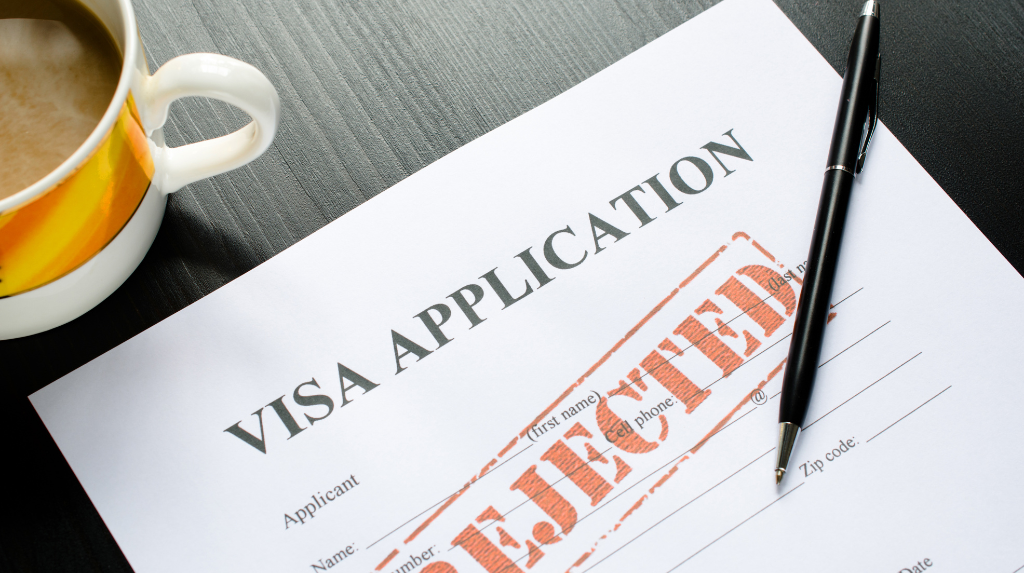Embarking on international travel often involves obtaining a visa, a gateway document that allows entry into a foreign country. However, not everyone receives a golden ticket; some face the disappointment of visa refusal. In this article, we’ll explore the reasons behind visa refusals, the impact on applicants, and steps to improve your chances of a successful application.
What is a Visa Refusal?
A visa refusal occurs when the immigration authorities of a country deny an individual’s request for a visa. This decision can be disheartening, especially when one has made plans for travel, work, study, or family reunification. Understanding the common reasons for visa refusals and how to navigate this setback is crucial for those seeking entry into a new country.
Common Reasons for Visa Refusals:
Insufficient Documentation:
One of the primary reasons for visa refusals is the lack of proper documentation. Incomplete forms, missing supporting documents, or failure to provide necessary information can lead to an unfavorable decision.
Financial Inability:
Immigration authorities often assess an applicant’s financial capability to ensure they can support themselves during their stay. If the provided financial documentation is deemed insufficient or unreliable, it may result in a visa refusal.
Incomplete or Inaccurate Information:
Providing inaccurate or incomplete information in the visa application form is a common pitfall. Any discrepancies or inconsistencies can raise concerns and lead to refusal.
Criminal Record:
A criminal record can be grounds for visa refusal, depending on the severity of the offense. Certain countries have strict policies regarding individuals with a history of criminal activities.
Overstaying a Previous Visa:
Individuals who have previously overstayed a visa may face challenges in obtaining a new one. Immigration authorities may view this as a potential risk for non-compliance with visa regulations.
Health Issues:
Some countries require applicants to undergo a medical examination to ensure they do not pose a health risk to the local population. Failure to meet health requirements can result in a visa refusal.
Understanding the Impact of Visa Refusals:
Financial Loss:
Visa application fees are non-refundable, and the costs associated with preparing documents, travel plans, and accommodations can lead to a significant financial setback for applicants facing refusal.
Emotional Stress:
The emotional toll of a visa refusal can be substantial. Applicants often experience disappointment, frustration, and stress, especially when the refusal affects important life plans.
Delay in Plans:
Visa refusals can lead to delays in educational pursuits, job opportunities, family reunification, or other life plans. This delay can have a cascading effect on an individual’s personal and professional trajectory.
Impact on Reputation:
Multiple visa refusals may impact an individual’s reputation, raising questions about their eligibility and adherence to immigration regulations. This can create additional hurdles in future visa applications.
.Steps to Address a Visa Refusal:
Understand the Reason:
Carefully review the visa refusal letter to understand the specific reasons for the denial. This information is crucial for addressing and rectifying the issues in a subsequent application.
Seek Professional Advice:
Consulting with an immigration lawyer or consultant can provide valuable insights into the visa refusal. Professionals can help assess the situation, identify weaknesses in the initial application, and guide applicants on the best course of action.
Correct Documentation:
Ensure that all required documents are complete, accurate, and meet the specific criteria outlined by the immigration authorities. Pay attention to details, and if necessary, seek assistance in preparing a comprehensive application.
Address Financial Concerns:
If financial concerns were a contributing factor in the refusal, take steps to provide more robust evidence of financial stability. This may include updated bank statements, income certificates, or sponsorship letters.
Rectify Inaccurate Information:
Correct any inaccuracies or inconsistencies in the information provided in the initial application. Honest and transparent communication is key to rebuilding trust with immigration authorities.
Demonstrate Strong Ties:
Highlight strong ties to your home country, such as family relationships, employment, property ownership, or community involvement. This can help alleviate concerns about the intention to return after the visit.
Tips to Improve Visa Approval Odds:
Start Early:
Begin the visa application process well in advance to allow ample time for document preparation, verification, and addressing any potential issues.
Thoroughly Review Requirements:
Familiarize yourself with the specific requirements of the visa you are applying for. Each visa category may have unique criteria, and a thorough understanding can help in preparing a robust application.
Consult Official Resources:
Rely on official government websites and resources for accurate and up-to-date information. Avoid relying solely on third-party sources that may provide outdated or inaccurate details.
Build a Strong Application:
Present a compelling case by providing all necessary documents, demonstrating financial stability, and ensuring that the application form is complete and accurate.
Seek Professional Assistance:
Consider seeking professional assistance, especially if you have faced a previous refusal. Immigration consultants or lawyers can offer valuable guidance based on their expertise.
Maintain Clear Communication:
Clearly communicate your intentions and provide any additional information requested by the immigration authorities promptly. Prompt and transparent communication can positively impact the decision-making process.
Facing a visa refusal can be a challenging experience, but it’s essential to approach it with resilience and a proactive mindset. Understanding the reasons behind visa refusals, addressing the issues, and taking steps to improve your application can significantly enhance your chances of a successful outcome in future endeavors. Remember, a visa refusal is not the end of the road; it’s an opportunity to learn, adapt, and approach the application process with newfound knowledge and determination.
Do you need assistance with your Visa Refusal??
Contact our team of skilled immigration lawyers to discuss your visa and immigration needs.
Call us on +234 812 5505 986 or WhatsApp us at +234 818 1547 085 for immediate assistance with your situation. We are available to assist you in person, over the phone, or online.





